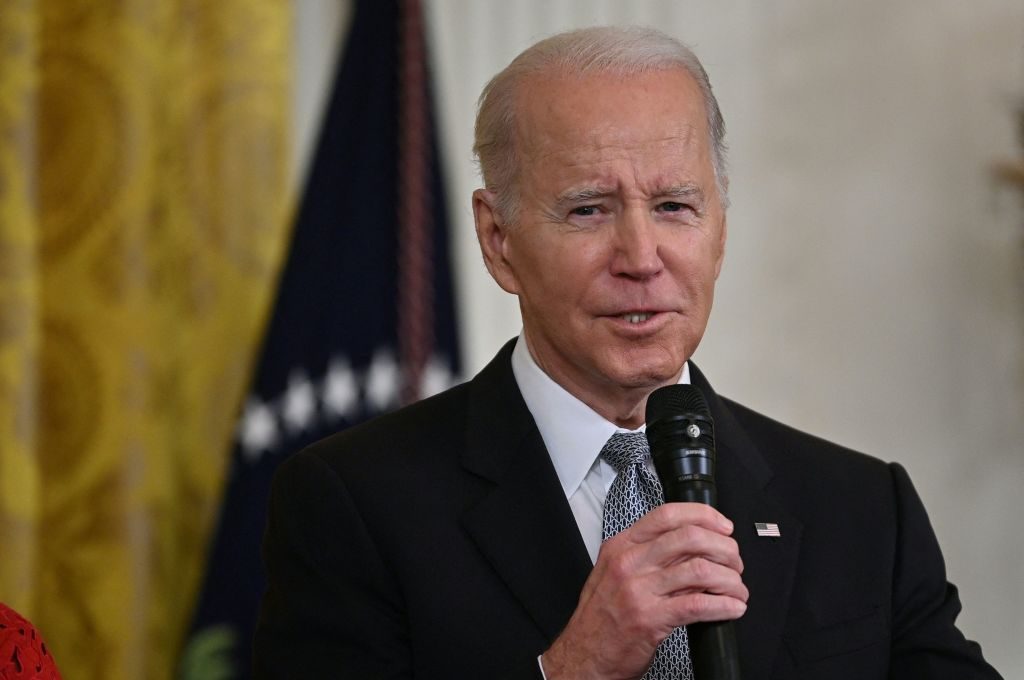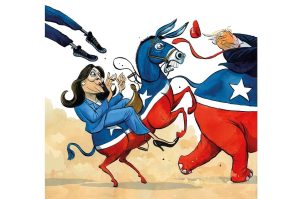Indiana
When Joe Biden directed a review into the classification of cannabis two years ago, no one — not the stoners nor the industry — expected a volte face from the Drug Enforcement Administration, the agency with the last word on the drug’s status. It has, after all, rejected countless attempts in the past.
But late last month, the DEA revealed it would reclassify the drug from Schedule I to a Schedule III, claiming that it has some medicinal function for physical and psychological dependency.
For the cannabis industry this amendment is seen as a big victory. It needed a break, too. It’s no secret that the legal, state-regulated weed sector has been struggling for years to stay afloat, in a constant battle to compete with the ferocity of the black market, forced to pay upwards of 70 percent tax to the taxman, while adhering to strict regulatory controls.
By moving the drug to Schedule III, cannabis businesses will now appreciate some of the benefits enjoyed by other legit operations. They’ll gain easier access to banking solutions in addition to being awarded much-needed tax breaks that dealing in a Schedule I drug didn’t permit. It also allows for medical cannabis researchers to examine the efficacy of the drug in a therapeutic capacity — also something made difficult as a Schedule I.
But this reclassification is a blessing for Big Pharma. Reclassifying the cannabis plant essentially guarantees that the pharmaceutical companies are going to swoop in to capitalize on it. For decades, weed’s Schedule I classification made it fiscally unsound for the cure corporations to develop pot-based products. They had opioids, so they’d manage. Lowering pot to a Schedule III, is a different story altogether.
Although anti-cannabis legalization groups are worried that the reclassification will lead to “Big Marijuana” — the pot equivalent of Big Tobacco — the more likely scenario, in this case, is one where the drug manufacturers take some control over the country’s cannabis operations. With more Americans smoking weed on a daily basis than drinking, according to a recent study, this means big business.
Pharmaceutical firms have pockets deep enough to develop cannabis-derived medications and get them approved for market by the Food and Drug Administration. The cannabis industry doesn’t have that power. It cost upwards of $1 billion for a drug producer to bring a single product to market. Weed producers are still trying to pay the IRS. At the same time, the cannabis industry doesn’t necessarily subscribe to an intermingling between namaste and narcotics. These mammoth pill-slingers don’t care. They’re not exactly known for exhibiting scruples. And they already understand how to navigate the bureaucratic red tape within the FDA’s drug approval protocol. This is all in their wheelhouse. They know what it takes to move a drug from clinical trials to raking in hundreds of billions of dollars following nationwide distribution.
Many pot advocates believe Big Pharma is intimidated by legal weed (allegedly this is why these corporations have paid off politicians all these years to impede legalization). Considering the ridiculousness of the drug prices that some Americans are forced to pay, Big Pharma doesn’t appear to be afraid of anything except a call for increased transparency and maybe a less than favorable quarter. Some advocates think that freeing the leaf at the federal level would render their lab-produced medications useless since everyone would just opt to smoke weed for whatever ails them rather than lean on prescription drugs.
It’s a laughable argument. If cannabis truly has medicinal benefits, the pharmaceutical companies were always going to be the first to snake their way into monetising it. The timing just hasn’t been right. Once the Schedule III designation becomes official, however, they will have the chance to not only become part of the cannabis conversation but potentially take it over.
This is the moment where cannabis and capitalism finally collide. It’s a nasty narrative that cannabis advocates have wanted to prevent since Britain’s GW Pharmaceuticals became the first drug company to successfully earn FDA approval for a cannabis-derived epilepsy treatment called Epidiolex. In their mind, this is their plant and should not be tainted by Big Pharma.
If the drug companies get involved, the concept of medical marijuana will begin to look very different in the US. But would that be a bad thing? An FDA-approved cannabis medication could be prescribed by licensed physicians nationwide (even in states where pot is not legal) and distributed to every major pharmacy.
Patients could essentially visit their healthcare professional and be prescribed pot-based medications for approved conditions (anxiety and depression, for example) rather than rely on their state programs. The downside would be that smoking as a delivery method would likely be prohibited.
If there’s a potential upside in the pharmaceutical companies’ involvement in cannabis, it’s that it would allow patients to have their medical marijuana covered by health insurance. Patients participating in state medical marijuana programs dishing out hundreds of dollars a month could suddenly have access to comparable medications for little to no charge.
Weed would also likely be covered by federal and state-funded health insurance programs like Medicaid and Medicare. A Schedule III classification would conceivably legitimize medical marijuana at the federal level, just not the way most cannabis advocates would like, presumably giving way to a variety of safe and effective cannabis medications. It only stands to reason that if the entire cannabis plant — all of its cannabinoids and terpenes — is Schedule III, all bets are off. Any imaginable cannabis drug that can be realized for a medical condition is destined to emerge in this fashion.
And let’s not forget that the US government holds the patent (Patent No. 6,630,507) on cannabis compounds. We could soon see a wild boom of cannabis patents as a result of the rescheduling initiative. Who is going to hold them?
The move to make cannabis a Schedule III drug was likely part of Biden’s campaign strategy, strictly a political move to appeal to younger voters. This is often an easy demographic to bamboozle with policy changes that hold very little benefit for the average citizen.
Aside from providing an opportunity for dangerously wealthy drug companies to get in on the business of bud, the reclassification would do nothing with respect to social justice. Pot possession would still be very much criminalized at the federal level and in states where prohibition remains the law of the land. The Schedule III classification is also a waste of progressive policy when it comes to satisfying the disparities between state and federal law. As for the thousands of weed offenders currently serving time in American prisons, they won’t be getting out anytime soon.
This, of course, is America’s modus operandi — to keep criminalizing the impoverished while paving the way for the rich to get richer. For the moment, Big Pharma appears to be the only eventual winner in this deal, as long as they decide to participate. Only time will tell.
This article was originally published on The Spectator’s UK website.





















